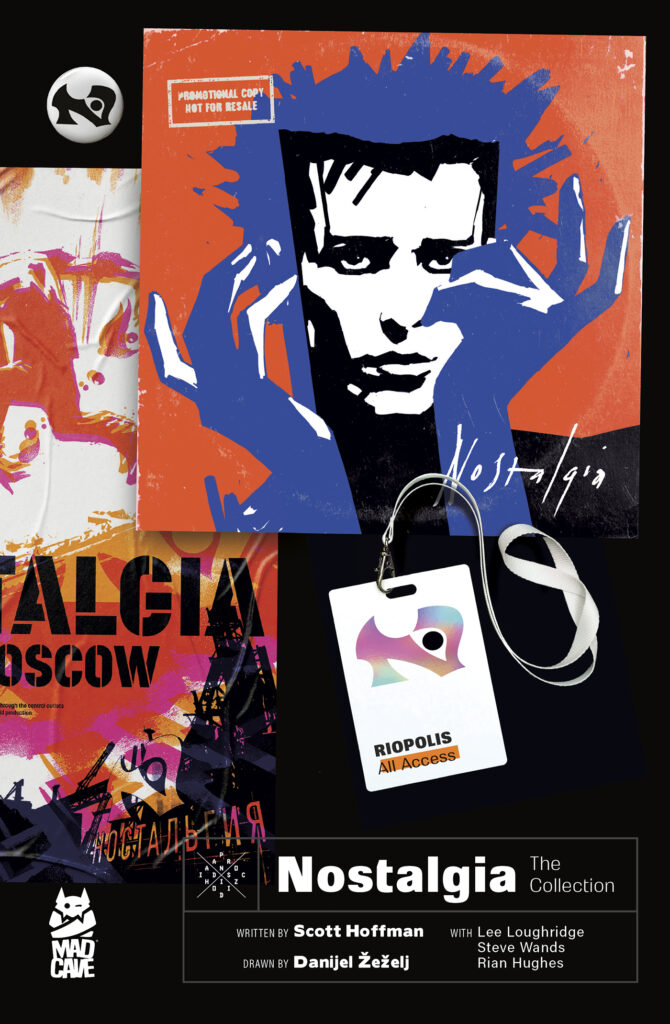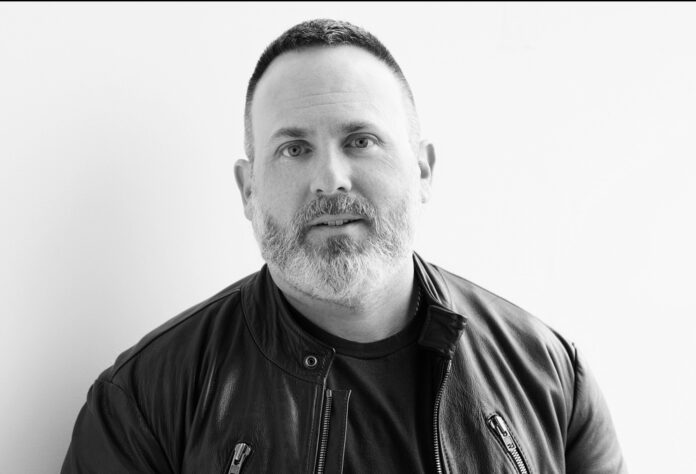The opening line of the 2004 Scissor Sisters track “Music Is the Victim“—”I left my heart in San Francisco”—wasn’t some tossed-off lyric.
It came from a glittery keychain that Scott Hoffman received from a friend in the early 2000s, on his way out of the city that had helped shape him.
Long before he became Babydaddy of the pop band Scissor Sisters, embarking on tours with Elton John and working with Kylie Minogue, instrumentalist Hoffman was a recent college grad spinning through late nights at San Francisco’s End Up, soaking in the city’s deep house and all this campy early 2000s dance music, like Detroit Grand Pubahs’ “Sandwiches” and Madison Avenue’s ‘Don’t Call Me Baby.”
“I decided to move there right after college in 1999,” Hoffman tells 48 Hills. “This is where I’d go to discover some great creative moments for myself. I just wanted to hear music everywhere. It was such a special moment—until I got priced out in 2001.”
Now, more than two decades later, Hoffman’s past has returned in a new form—and with it, a rekindled relationship with the city that first taught him how to dance.

Nostalgia, his debut graphic novel from Mad Cave Studios, dives deep into the disorienting swirl of fame, memory, and redemption.
The book centers on a reclusive musician in a dystopian future, haunted by past ideals and unresolved truths. Hoffman may regard this central figure as a foreign body, but he admits to feeling very at home in the dark world he inhabits. It’s a sentiment he shares with Scissor Sisters singer Jake Shears.
“Jake and I probably first bonded over horror movies and sci-fi and all this crazy shit,” says Hoffman. “We love to be scared. I don’t know what that’s all about. Yeah, dystopias scare me, but we’re already living in one. Sorry to tell you.”
What began as a pandemic-era creative breakthrough—spurred by encouragement from comics legend Phil Jimenez—has evolved into an ambitious reimagining of storytelling for Hoffman, who, along with Shears, originally studied creative writing before transitioning into music.
“We both knew we were going to do something creative and different,” Hoffman says. “We fell into the band the way we fell into it, through chance and friendships and passions that were transforming into other things. But we always saw ourselves as writers.”
That ethos of reinvention and creative hybridity pulses through Nostalgia, a comic influenced as much by ambient music and experimental form as it is by glam-rock attitude.
“Music is memory,” says Hoffman. “I wanted to think about music as a technology that transfers memory from the creator to the people listening. And it’s one of the most effective ways to share experiences with others.”
Working alongside Croatian artist Danijel Žeželj, colorist Lee Loughridge, and legendary designer Rian Hughes, Hoffman found himself immersed in a medium where collaboration feels less like compromise and more like co-creation.
“This was Daniel’s visual interpretation of my script,” Hoffman says. “It was exciting for me to see what he did.”
As Hoffman tells it, the novel’s central theme—impostor syndrome—carries personal resonance. “The idea that we, regardless of what other people think of us, build ourselves up to be a certain thing with a particular set of responsibilities, we may have to believe a particular lie about ourselves to become comfortable with that past.”
Though the protagonist of Nostalgia is a solitary artist, Hoffman’s career has been defined by connection: to collaborators, bandmates, and the queer community that helped lift Scissor Sisters from the downtown clubs of New York to global stages.
“We were fortunate to have started when we did, in our early to mid-20s,” says Hoffman. “We were adults by then. We had already dealt with some of those feelings of neediness, of having people adore us. So we never built ourselves up as an unapproachable band.”
Still, as Hoffman notes, fame’s isolating effects don’t always come from ego or aloofness.
“I did see that there were people who were more isolated than others,” he says. “When you’re on these tours in these small environments, [bandmate Del Marquis] needs to pull away for a minute to regroup. Then one starts pulling away more and more. And then who are you, once you’re feeling the need to isolate yourself from people?”
As Nostalgia hits shelves, Scissor Sisters are hitting the road again—touring with Kesha this summer in a co-headlining arrangement that, in typical Scissor Sisters fashion, bends genre lines and refuses nostalgia even while basking in it.
The tour offers fans a chance to rediscover the band on their terms, blending beloved tracks with a renewed sense of purpose.
“We found a perfect mix of looking at our past in a way that honored it, but was not dependent on it,” Hoffman says. “It doesn’t feel like a throwback to us. It excites us about continuing.”
It also marks a cultural correction, perhaps. Hoffman acknowledges being written out of the history of early 2000s rock, defined by bands such as The Strokes, Yeah Yeah Yeahs, and The White Stripes. He also views the band as outliers in the electroclash scene, once dominated by Peaches.
It was the queer club culture of places like San Francisco, as well as its figureheads like Heklina and Juanita MORE!, that made the Scissor Sisters feel at home.
“Heklina was so inspirational to this band,” says Hoffman. “From our early gigs there to everything about San Francisco, it just felt like freakiness was an integral part of the equation. That’s another place aside from certain parts of New York, where that ‘Filthy Gorgeous’ sentiment is a part of the culture—that John Waters‘ psychotic juxtaposition of amazing and complete filth.”
This spirit is captured in the kinky 2004 video for “Filthy Gorgeous,” directed by John Cameron Mitchell.
That blend of high art and filth, of theatricality and sincerity, is what kept fans coming back—and why the band continues to hold such emotional weight.
“We went through a career’s arc in four albums,” Hoffman says. “We didn’t want to overstay our welcome, but now we’re at the stage of ‘What’s next?'”
Now, the “what’s next” may include new music, though nothing is officially confirmed. “Our goal was to get out there and feel this, and to see whether the world seems like it’s asking for more Scissor Sisters in their life,” says Hoffman.
Until then, Nostalgia stands as both a personal artistic statement and a reflection of a generation still sorting through what it meant to survive fame, trauma, and creative burnout—and what it means to come back changed.
From the underground clubs of New York to the dancefloors of San Francisco, and now onto the printed page, Hoffman’s journey continues. If we’re lucky, it’ll come with a soundtrack.





